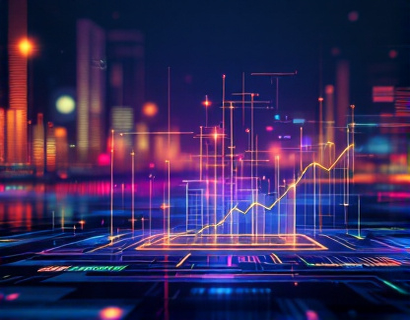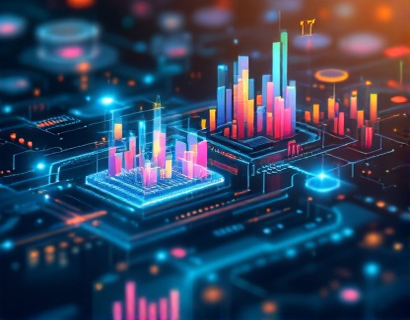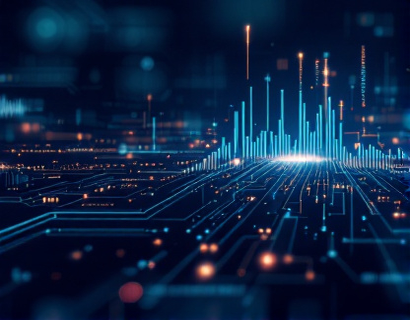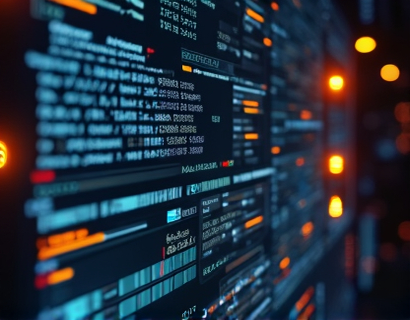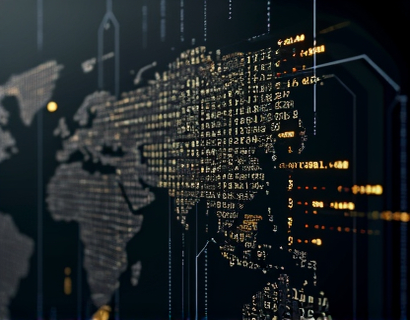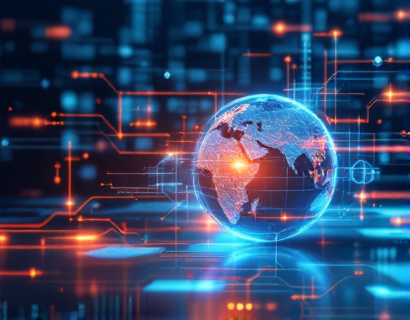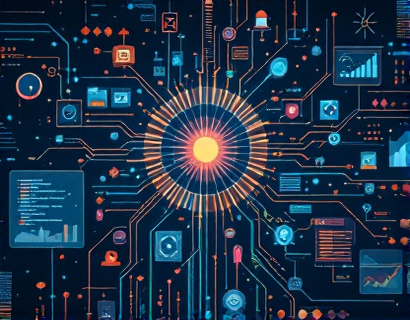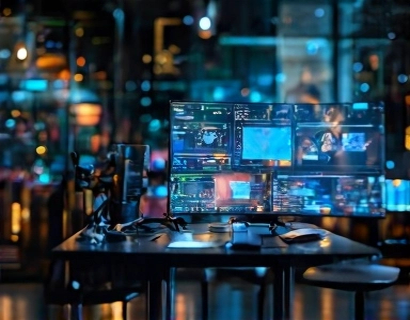AI and Crypto: Pioneering Financial Innovation in the Digital Age
The convergence of artificial intelligence and cryptocurrency is ushering in a new era of financial innovation, transforming the way we interact with digital assets and financial services. This intersection is not just a technological curiosity but a fundamental shift that is redefining the landscape of digital finance. As we delve into this topic, it's essential to understand the core components of both AI and crypto, and how their synergy is creating next-generation intelligent crypto solutions.
Artificial intelligence, at its core, involves the simulation of human intelligence processes by machines, particularly computer systems. These processes include learning, reasoning, and self-correction. In the context of finance, AI has been applied to various domains such as algorithmic trading, risk management, and customer service. The ability of AI to analyze vast amounts of data quickly and accurately makes it an invaluable tool in the financial sector.
Cryptocurrency, on the other hand, is a digital or virtual currency that uses cryptography for security. It operates on a decentralized network, typically a blockchain, which ensures transparency and immutability. Bitcoin, launched in 2009, was the first and most well-known cryptocurrency, but since then, thousands of alternative coins and tokens have emerged, each with unique features and use cases.
The combination of AI and crypto is particularly potent because it leverages the strengths of both technologies. AI can enhance the security, efficiency, and usability of cryptocurrency systems, while crypto provides a decentralized and transparent platform for AI applications to thrive. This synergy is leading to the development of intelligent crypto solutions that are revolutionizing digital finance.
Enhanced Security through AI
One of the most significant benefits of integrating AI into cryptocurrency systems is the enhancement of security measures. Traditional financial systems rely heavily on centralized security protocols, which can be vulnerable to breaches and hacks. In contrast, blockchain technology, the backbone of most cryptocurrencies, offers a decentralized approach to security. However, even blockchain is not immune to all types of attacks.
AI can significantly bolster the security of crypto systems by detecting and mitigating threats in real-time. Machine learning algorithms can analyze transaction patterns and identify anomalies that may indicate fraudulent activity. For instance, AI-driven systems can monitor blockchain networks for unusual spikes in transaction volume or unexpected transfers, alerting users and administrators to potential security breaches.
Moreover, AI can improve the security of private keys, which are crucial for accessing and managing cryptocurrency assets. Traditional methods of storing private keys, such as hardware wallets, can be compromised through sophisticated attacks. AI can enhance key management by generating more complex and unpredictable keys, and by continuously monitoring for any signs of unauthorized access.
Optimized Trading Strategies
Another area where AI and crypto intersect is in the realm of trading. The crypto market is known for its volatility and speed, making it both a challenging and rewarding environment for traders. AI can provide a competitive edge by analyzing vast amounts of market data to identify trends, predict price movements, and execute trades with precision.
Algorithmic trading, powered by AI, involves the use of algorithms to execute trades based on predefined criteria. These algorithms can process multiple data points simultaneously, including historical price data, market news, and social media sentiment. By doing so, AI-driven trading systems can make decisions faster and more accurately than human traders.
For example, AI can detect patterns in price movements that are not immediately apparent to human eyes. It can also adapt to changing market conditions in real-time, adjusting strategies as needed. This level of automation and precision can lead to higher returns and reduced risk for crypto traders.
Smart Contracts and Decentralized Applications
Smart contracts are self-executing contracts with the terms of the agreement directly written into code. They run on blockchain networks and automatically enforce and execute the terms of the contract when predefined conditions are met. AI can take smart contracts to the next level by adding intelligent decision-making capabilities.
AI-enhanced smart contracts can analyze complex scenarios and make nuanced decisions based on a wide range of factors. For instance, in decentralized finance (DeFi) platforms, AI can optimize lending and borrowing processes by assessing creditworthiness, setting interest rates, and managing risk more effectively.
Decentralized applications (dApps) are another area where AI and crypto converge. dApps are applications that run on decentralized networks, offering users more control and privacy compared to traditional centralized applications. AI can enhance dApps by providing personalized user experiences, predictive analytics, and automated services.
For example, a decentralized exchange (DEX) can use AI to match buyers and sellers more efficiently, predict price movements, and offer tailored investment recommendations. This level of intelligence can make dApps more user-friendly and functional, driving broader adoption in the crypto ecosystem.
Improved User Experience through AI
The user experience in the crypto space can be improved significantly through the integration of AI. Many users find cryptocurrency platforms complex and difficult to navigate, especially for those new to the space. AI can simplify these interactions by providing intuitive interfaces, personalized guidance, and real-time support.
Chatbots powered by natural language processing (NLP), a subset of AI, can offer 24/7 customer support, answering common questions and guiding users through complex processes. These chatbots can understand and respond to user queries in a natural, conversational manner, enhancing the overall user experience.
Additionally, AI can personalize the user interface based on individual preferences and behavior. For instance, a crypto trading platform can use AI to display the most relevant information and tools to each user, streamlining the trading process and reducing cognitive load.
Risk Management and Compliance
Risk management and compliance are critical aspects of any financial system, and the crypto space is no exception. The decentralized and often anonymous nature of cryptocurrencies can pose challenges in terms of regulatory compliance and anti-money laundering (AML) efforts. AI can address these challenges by providing advanced monitoring and analysis tools.
AI-driven systems can continuously monitor transactions and user behavior to detect and prevent illegal activities such as money laundering and fraud. Machine learning algorithms can be trained to recognize patterns associated with suspicious activities and flag them for review. This proactive approach can help crypto platforms stay compliant with regulations and build trust with users.
Moreover, AI can assist in managing the inherent risks of crypto investments. By analyzing market data and historical performance, AI can provide insights into potential risks and help investors make more informed decisions. This can include identifying overvalued or undervalued assets, predicting market trends, and suggesting diversification strategies.
Future Prospects and Challenges
The integration of AI and crypto holds immense potential, but it also comes with its own set of challenges. One of the primary concerns is the regulatory landscape. As AI and crypto continue to evolve, regulators are grappling with how to oversee these technologies effectively. Ensuring that AI-enhanced crypto solutions comply with existing regulations while fostering innovation is a delicate balance.
Another challenge is the technical complexity involved in developing and maintaining AI systems. Building robust and reliable AI models requires significant expertise and resources. Additionally, the transparency and explainability of AI decisions are crucial, especially in financial contexts where trust and accountability are paramount.
Despite these challenges, the future of AI and crypto is bright. As technology advances and more solutions are developed, we can expect to see even more sophisticated and user-friendly intelligent crypto applications. The synergy between AI and crypto is poised to drive significant advancements in digital finance, making financial services more accessible, secure, and efficient for users around the world.
In conclusion, the intersection of AI and crypto is a dynamic and rapidly evolving field that is reshaping the financial landscape. By leveraging the strengths of both technologies, we can create a more secure, efficient, and user-friendly digital finance ecosystem. As we look ahead, the potential for further innovation and growth is immense, promising a future where AI and crypto continue to push the boundaries of what is possible.







